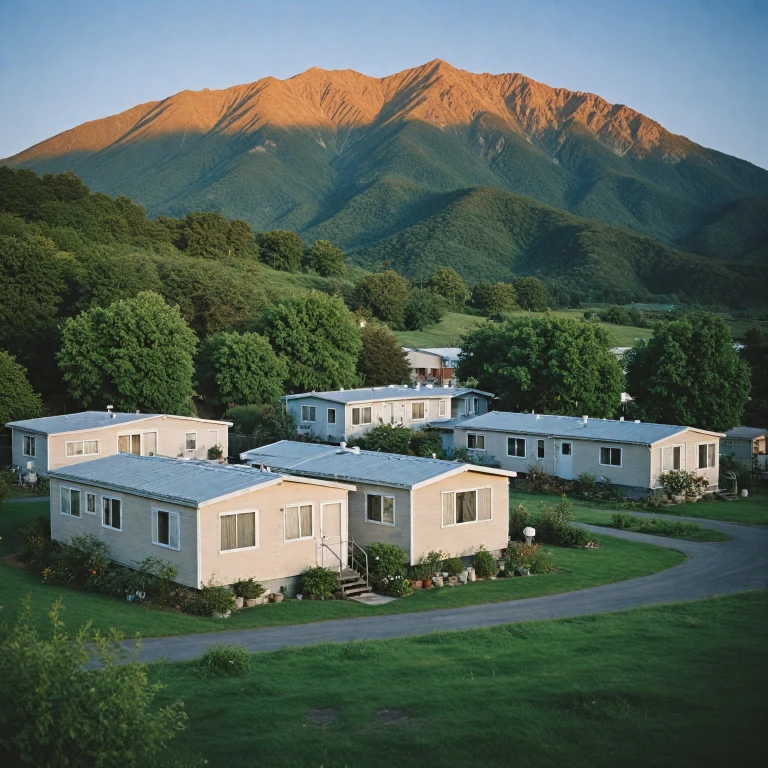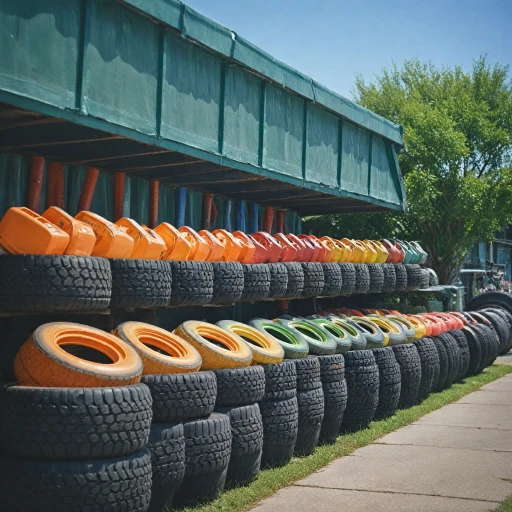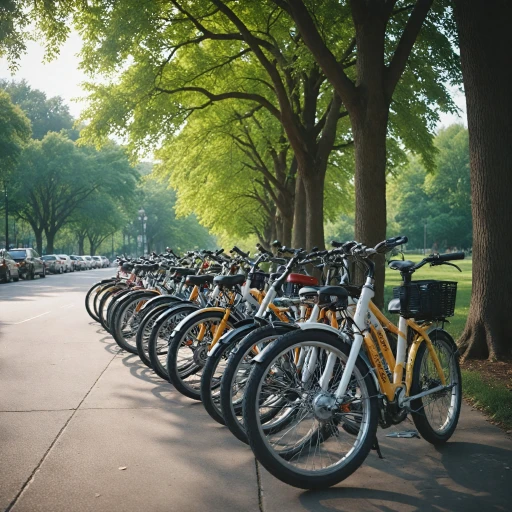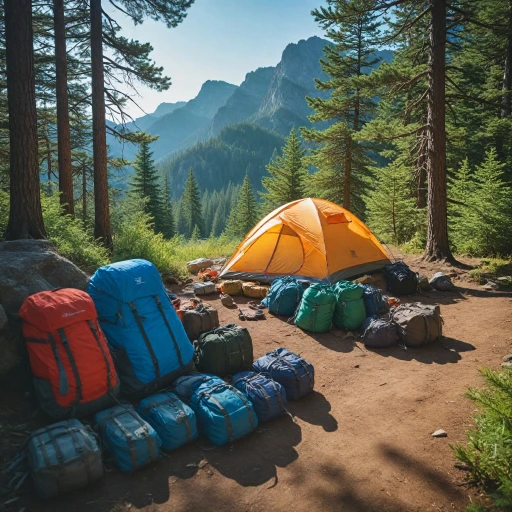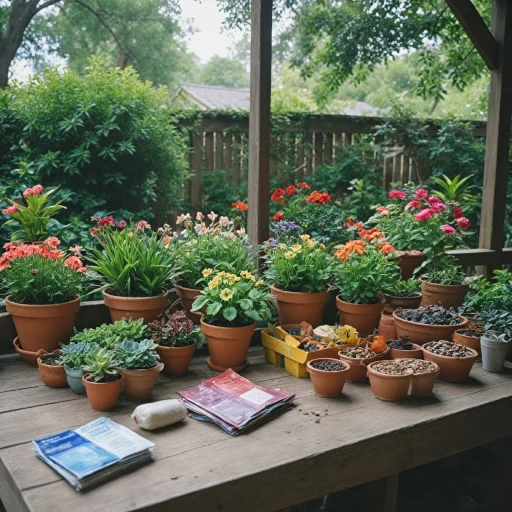
Understanding the Mobile Home Market
Current Trends in the Mobile Home Market
The mobile home market has seen significant shifts in recent years, with a growing interest in alternative living options such as tiny houses and prefabricated homes. These homes on wheels offer a unique blend of affordability and flexibility, making them an attractive option for many buyers. As the demand for these homes increases, so does the variety of options available, from custom designs to pre-owned models.
Factors Influencing Mobile Home Prices
Several factors can influence the price of mobile homes, including location, size, and design. For instance, a custom tiny house with high-end finishes will likely cost more than a basic model. Additionally, homes located in desirable areas or those with scenic views may command higher prices. It's important for buyers to consider these factors when evaluating their options and to keep an eye on market trends to make informed decisions.
Exploring Different Types of Mobile Homes
Mobile homes come in various forms, including park models, trailers, and container homes. Each type offers distinct features and benefits. For example, park models are often larger and more permanent, while trailers and container homes offer more mobility. Understanding the differences between these options can help buyers choose the right product for their lifestyle and budget.
Understanding the Appeal of Mobile Living
The appeal of mobile living lies in its flexibility and cost-effectiveness. Many people are drawn to the idea of living in a home on wheels that allows them to travel and explore new places without the constraints of traditional homeownership. This lifestyle also offers a quick and easy way to add living space without the need for extensive construction or renovation.
For those interested in exploring the market further, there are unmissable offers that can provide additional insights into the benefits and opportunities available in the mobile home market.
Financing Options for Mobile Homes
Exploring Financing Pathways for Mobile Homes
When considering the purchase of a mobile home, understanding the available financing options is crucial. Unlike traditional homes, mobile homes, often referred to as houses on wheels or tiny houses, have unique financing needs. Here's a breakdown of the primary options you can explore:
- Personal Loans: For those looking to buy a tiny house or a house trailer, personal loans can be a quick way to secure funds. These loans typically have higher interest rates but offer flexibility in terms of usage.
- Chattel Loans: Specifically designed for mobile homes, chattel loans are secured by the home itself, not the land. This is ideal for homes on wheels or park model homes.
- FHA Loans: The Federal Housing Administration offers loans for mobile homes, provided they meet certain criteria. This can be a viable option for those purchasing prefabricated homes or custom tiny homes.
- Dealer Financing: Many mobile home dealers offer in-house financing options. This can be convenient, especially for those buying custom designs or pre-owned homes.
It's important to evaluate the price and terms of each financing option carefully. Consider factors such as interest rates, loan duration, and any additional fees. Additionally, some buyers might find it beneficial to explore unlocking savings through various discount codes and offers, which can help reduce overall costs.
As you navigate these options, keep in mind the quality and features of the mobile home you're interested in, as discussed in other sections of this guide. Whether you're looking at a tiny house on wheels or a more traditional house trailer, understanding your financing options will empower you to make informed decisions.
Evaluating Quality and Features
Assessing Quality and Features of Mobile Homes
When diving into the world of mobile homes, evaluating the quality and features is crucial. Whether you're considering a tiny house on wheels or a more traditional mobile home, understanding what to look for can make a significant difference in your living experience.
Key Features to Consider
- Construction Materials: The durability of a mobile home largely depends on the materials used. Look for homes with high-quality, weather-resistant materials, especially if you're considering a house on wheels that will be on the move.
- Design and Layout: The design should suit your lifestyle. Whether you prefer a custom tiny house or a prefabricated model, ensure the layout maximizes space and functionality. Consider the main floor plan and how it accommodates your needs.
- Energy Efficiency: With rising energy costs, opting for energy-efficient homes can lead to significant savings. Check for features like insulated walls and energy-efficient appliances.
- Customization Options: Many manufacturers offer custom options, allowing you to add personal touches to your home. This can include everything from interior finishes to exterior design elements.
Quality Indicators
When evaluating a mobile home, certain indicators can help you assess its quality:
- NOAH Certification: This certification ensures that the home meets specific safety and quality standards, providing peace of mind.
- Reputation of Manufacturer: Research the manufacturer's reputation. A well-regarded company is more likely to produce reliable and durable products.
- Pre-Owned Options: If considering a pre-owned home, inspect it thoroughly for wear and tear. A well-maintained home can be a cost-effective choice.
For those looking to unlock savings on their mobile home purchase, exploring discounts and deals can be beneficial. Whether you're eyeing a tiny house or a larger model, understanding these elements will help you make an informed decision.
Negotiation Strategies for Buyers
Mastering the Art of Negotiation
When diving into the mobile home market, understanding negotiation strategies can significantly impact your purchasing experience. Whether you're eyeing a tiny house on wheels or a more traditional prefabricated home, having a clear strategy can help you secure the best deal.
First, it's crucial to research the price trends in your desired area. Knowing the average cost of homes and trailers in your region can provide a solid foundation for negotiations. Consider the view and location, as these factors can influence the price significantly.
Key Negotiation Tips
- Know Your Budget: Before entering negotiations, determine your maximum budget. This will help you avoid overspending and ensure you stay within your financial limits.
- Inspect Thoroughly: Evaluate the quality and features of the mobile home. Look for any signs of wear or needed repairs, especially in pre-owned units, which can be a bargaining point.
- Leverage Financing Options: Understanding your financing options can give you an edge. Sellers may be more flexible if they know you have secured financing.
- Consider Customization: If you're looking at custom tiny homes or park model homes, discuss potential design changes or additions that could affect the final product.
- Be Ready to Walk Away: Sometimes, the best negotiation tactic is to be willing to walk away. This can prompt sellers to reconsider their price or offer additional incentives.
Remember, negotiation is not just about lowering the price. It's about finding the right balance between cost, quality, and features that suit your living needs. Whether you're considering a tiny house or a larger mobile home, these strategies can help you navigate the market with confidence.
Legal Considerations and Regulations
Key Legal Aspects to Consider
When diving into the world of mobile homes, understanding the legal landscape is crucial. Whether you're considering a tiny house on wheels or a more traditional prefabricated home, being aware of the regulations can save you from potential pitfalls.
Zoning Laws and Regulations
Zoning laws can significantly impact where you can place your mobile home. These laws vary widely by location and can dictate whether you can park your house trailer in a residential area or if it must be in a designated mobile home park. It's essential to check local zoning regulations to ensure compliance and avoid fines.
Building Codes and Certifications
Mobile homes, including custom tiny houses and park models, must adhere to specific building codes. In the U.S., the HUD Code sets the standards for construction and safety. Additionally, some tiny homes may seek NOAH certification, which can provide peace of mind regarding quality and safety standards.
Ownership and Title Considerations
Understanding the nuances of ownership is vital. Unlike traditional homes, mobile homes may be classified as personal property rather than real estate, affecting how they are titled and taxed. Ensure you have a clear title when purchasing, whether it's a new or pre-owned unit.
Land Lease Agreements
If your mobile home will be situated on leased land, thoroughly review the lease agreement. Consider factors like lease duration, rent increases, and any restrictions on modifications or additions to your home. This is particularly important for those living in mobile home parks.
Insurance and Liability
Securing the right insurance is crucial for protecting your investment. Mobile home insurance typically covers the structure, personal property, and liability. Ensure your policy aligns with your living situation, whether your home is on wheels or a fixed foundation.
By understanding these legal considerations, you can navigate the mobile home market with confidence, ensuring a smooth transition into your new living space.
Maintenance and Upkeep Tips
Essential Maintenance Tips for Your Mobile Home
Maintaining a mobile home, whether it's a tiny house on wheels or a larger prefabricated model, requires regular attention to ensure longevity and comfort. Here are some key tips to keep your home in top shape:
- Regular Inspections: Conduct routine checks of your home’s exterior and interior. Look for signs of wear and tear, especially around windows, doors, and the roof. This is crucial for both custom tiny homes and pre-owned options.
- Roof Maintenance: The roof is one of the most critical components. Ensure it's free from leaks and debris. For homes on wheels, this is particularly important as they are more exposed to the elements.
- Plumbing and Electrical Systems: Regularly inspect plumbing and electrical systems. This is vital for tiny houses and park models to prevent costly repairs.
- Foundation and Anchoring: If your mobile home is stationary, check the foundation and anchoring systems. For house trailers and homes on wheels, ensure that the wheels and axles are in good condition.
- Cleaning and Ventilation: Keep your home clean and well-ventilated. This is especially important for tiny homes where space is limited, and air circulation can be a challenge.
- Seasonal Preparations: Prepare your home for different seasons. Insulate properly for winter and ensure your cooling systems are efficient for summer. This applies to both custom designs and pre-owned homes.
Upkeep for Long-Term Living
Whether you're living in a tiny house or a larger mobile home, consistent upkeep is key to preserving your investment. Consider these additional tips:
- Interior Care: Regularly clean and maintain the interior. This includes flooring, walls, and fixtures. For tiny homes, maximizing space with smart storage solutions can enhance living comfort.
- Exterior Protection: Apply protective coatings to the exterior to prevent damage from weather conditions. This is crucial for homes on wheels that are frequently moved.
- Appliance Maintenance: Keep appliances in good working order. Regular servicing can prevent breakdowns and extend their lifespan, especially in tiny houses where space for replacements is limited.
- Documentation and Compliance: Ensure all legal documents are up to date and that your home complies with local regulations. This is important for NOAH certified homes and other certified models.
By following these maintenance and upkeep tips, you can enjoy your mobile home for years to come, whether it's a tiny house or a larger park model.

